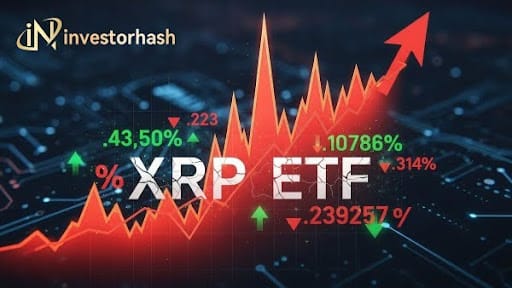South Korea Financial Regulator Plans Investigation Into Local Exchange Fees

Cointelegraph reports that South Korea's Financial Services Commission (FSC) will launch a probe into transaction fees charged by domestic cryptocurrency exchanges. The investigation aims to reduce trading costs for users according to local media reports published June 19. The move represents part of newly elected president Lee Jae-myung's broader pro-crypto agenda. Lee promised to reduce crypto trading transaction costs to support young traders during his presidential campaign.
The FSC plans to conduct a survey of crypto exchanges examining their current fee systems, charging methods and collected amounts. According to Herald Economy, the FSC announced its investigation plan during a policy briefing before the State Affairs Planning Committee, which serves as a presidential transition team for the Lee Jae-myung administration.
Exchange Fee Investigation Parameters
An FSC official stated the need to examine whether current fees of domestic exchanges create excessive burden on consumers and whether they remain at appropriate levels compared to overseas cases. The FSC has not yet established a target commission rate and plans to develop policy standards based on comparative analysis of domestic and foreign exchanges alongside user preferences.
Current global trends show cryptocurrency exchanges charging varying fee structures. Koinly research from March 2025 indicates most exchanges charge percentage-based fees ranging from 0.1% to 0.5% of transaction value. Volume-based discounts and membership programs often reduce these costs for frequent traders.
FXEmpire analysis from recent weeks shows leading platforms like MEXC offer zero maker fees, while others maintain competitive structures. Korean exchanges currently operate under different fee models compared to international competitors, creating potential regulatory concerns about market competitiveness.
Market Context and Global Fee Comparison
TokenTax analysis reveals ultra-low exchange fees save active traders thousands annually. Tight fee schedules significantly impact overall profitability, making them critical considerations for Korean traders who represent approximately one-third of the country's population as crypto investors.
Trading fees typically follow maker-taker models or fixed spread structures applied to executed orders. CoinLedger data from December 2024 shows major exchanges charging maker fees from 0.10% to 0.30% and taker fees from 0.10% to 0.40%. Korean exchanges may face pressure to align with these international standards.
The investigation comes as Kaiko Research reports Korea remains the second-largest crypto market with 35% global share despite recent volume declines. Upbit maintains dominant 69% market share as of February 2025, though its dominance declined from 86% in 2021 due to competitor fee-free campaigns.
Regulatory Implications for Crypto Markets
The fee investigation reflects broader regulatory trends across global cryptocurrency markets. Lee Jae-myung's administration represents a shift toward crypto-friendly policies including spot ETF legalization and institutional investment allowances. The president previously raised campaign funds through NFT issuance, becoming the first presidential candidate globally to adopt this method.
South Korea's approach contrasts with other jurisdictions implementing comprehensive regulatory frameworks. The European Union's Markets in Crypto-Assets regulation took full effect in January 2025, while the United States continues agency-driven enforcement through separate oversight bodies.
The investigation timing aligns with increased institutional interest in cryptocurrency markets. Bitcoin reached new highs above $100,000 in 2024, with institutional inflows into Bitcoin Exchange-Traded Products projected to exceed $250 billion in 2025 according to market analysts.
Broader Market Impact and Industry Response
The fee investigation could reshape South Korea's cryptocurrency trading landscape. With over 16 million crypto investors representing nearly one-third of the population, reduced trading costs would directly impact millions of users. The country recorded $74.5 billion worth of digital assets by end of 2024.
Market participants await policy standards development based on the FSC's comparative analysis. The investigation represents part of Lee Jae-myung's commitment to creating safe investment environments for young people to accumulate assets and plan futures.
Exchange operators may need to adjust fee structures depending on investigation findings. The FSC's approach suggests potential intervention measures if domestic fees exceed appropriate levels compared to international markets. This development occurs as Korean exchanges process significant trading volumes, with five major platforms recording higher trading than stock exchange values in March.
The investigation outcome could influence other regulatory initiatives including won-backed stablecoin development and national pension fund cryptocurrency investments. These policies form part of Lee Jae-myung's broader digital asset agenda positioning South Korea as a regional cryptocurrency hub.
Related Reading on BTC Peers
BTC Peers Global Bitcoin Policy Index provides comprehensive analysis of Bitcoin regulatory environments across different countries. This resource offers insights into how various jurisdictions approach cryptocurrency regulation, helping readers understand global policy trends and their impact on Bitcoin adoption. The index covers regulatory frameworks, government stances, and policy developments that shape Bitcoin's legal status worldwide.




